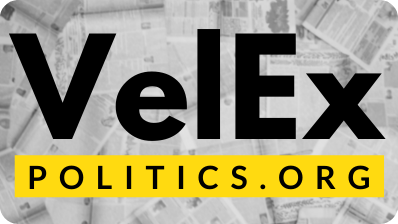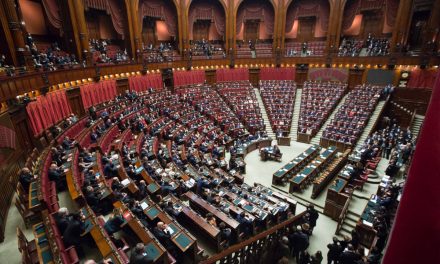THE JOURNEY
Democracy is by far the best system that humans implemented so far. It increased our standards of living, longevity, individual rights, level of education, and much more. It allows for political competition and a balance of power between the people and government. Democracy has been a major part of human history for hundreds of years. In modern society, democracy is still widely used because it offers a rich culture, a high sense of individuality, and simultaneously a strong sense of community. Democracy has helped many countries overcome poverty and develop their own industries. It is the system we live in, and it is the way we want to be governed.
Obviously, there are flaws in democracy but there are also flaws in all systems of governance. Achieving perfection is not only impossible, but it is also unnecessary. What is necessary is to minimize the flaws in our system as much as possible. Achieving this goal requires constant vigilance and, at times, active corrective action. One such corrective action is when we, the people, decide to throw out a corrupt government. This is something that has been done only a few times in recorded history. Usually, it is not pretty. Consider the French Revolution, the American Revolution, the Russian Revolution, the East German Revolution, etc. For that reason, one should not perceive current forms of democracy as the final destination which humanity reached while experimenting with different systems of governance. Perhaps we are on our way to discovering and implementing an even better system but for now, we can and should rest assured that the situation has never been better for most of the people on this planet.
GOING DIRECT
That being said, I believe the best form of government for humans is a direct democracy. In a direct democracy, all the power is in the hands of the people. No matter what the size of the group, everyone gets a chance to have his or her voice heard. In fact, all the people who are affected by a certain issue have a say in how that issue will be dealt with. An example of direct democracy is if everyone who lives in a certain geographical area decides whether or not they want to allow casinos in their city or town. The people who live in that area would be the government and everyone who works there and/or owns property there would be the voters. This type of system gives every single person the power to make important decisions without any influence or control from outside parties. It is also one of the most efficient forms of governance. All the information needed to make an intelligent decision would be readily available to everyone and the outcome would be swift.
Forever, if needed, we can go back to the original way things were done. In a direct democracy, there is no need for political parties, special interests, lobbyists, corruption, campaign finance laws, media propaganda, or any other of the many ways in which we, as a society, try to control the process of governance. These control mechanisms do not guarantee an ethical or just outcome but they do help ensure a more positive one. Achieving perfection in governance is impossible so the goal should be to minimize the damage these control mechanisms do to us as much as possible. In my opinion, direct democracy is the best system for minimizing this damage. It also has several other important benefits: It is easy to understand There is no confusion about what the rules are It promotes equality It is cheap It is fast It is fair It is simple It is transparent And most importantly… It is FUN! I think all of us want a government that is easy to understand, promotes equality, is cheap, fast, fair, simple, and most of all… FUN! I believe a direct democracy is the best form of government for achieving all of these goals. It is easy to understand.
CHALLENGES
However, pure direct democracy has several major flaws. First, it is nearly impossible for a small group of people (even a very large group of people) to make sound decisions. There are simply too many variables involved and too many important considerations to be made. If you take a group of 10,000 people and give them a simple question to answer, the answer will be pretty much the same as if you took that same group of 10,000 people and gave them 10 separate questions to answer. The reason is that all the individual answers combined will equal the collective wisdom of the group. However, taking the same group of 10,000 people and giving them 10 separate questions will produce a totally different result. This is true whether you are talking about a group of 10 people or a group of 10,000 people. A related problem with direct democracy is the tyranny of the majority.
Accordingly, I believe a direct democracy should not make decisions by voting alone. Instead, I believe voting should be only one part of the process. The other parts include…
- A method for each voter to provide input concerning an issue without being anonymous
- Some method for those inputs to be weighed collectively and
- An intelligent mechanism for combining the results of the voting with the non-voting input to produce a consensus decision. I would like to propose something I call “The Triple Majority Rule”. It works like this: Whenever a question comes up for a vote, the question is submitted to all the voters three separate times. The first time it is submitted, the voters can vote yes, no, or abstain. The second time they can change their previous vote. The third time (and only the third time) they can vote “abstain” which means they are not voting either yes or no but instead… they are expressing their lack of interest in the issue. By using this rule, each person who expresses an opinion will have some influence on the outcome… but… not nearly as much influence as if they had voted yes or no the first two times.
In order to detect additional challenges for direct democracy and apply proper solutions, we should start experimenting with this system as soon as possible. The opportunities it brings seem more than worthy of our trying. The current situation is similar to how we approach a problem at work. We should try it out, make mistakes, and learn from them. If we don’t experiment, we will never learn anything. If you look at the history of all the great innovations that have shaped our society and changed the world… there is always a little trial and error involved. But the benefits we may achieve are while doing so could trigger prosperity for generations to come and set the tone for developing even better systems of governance in the future.










